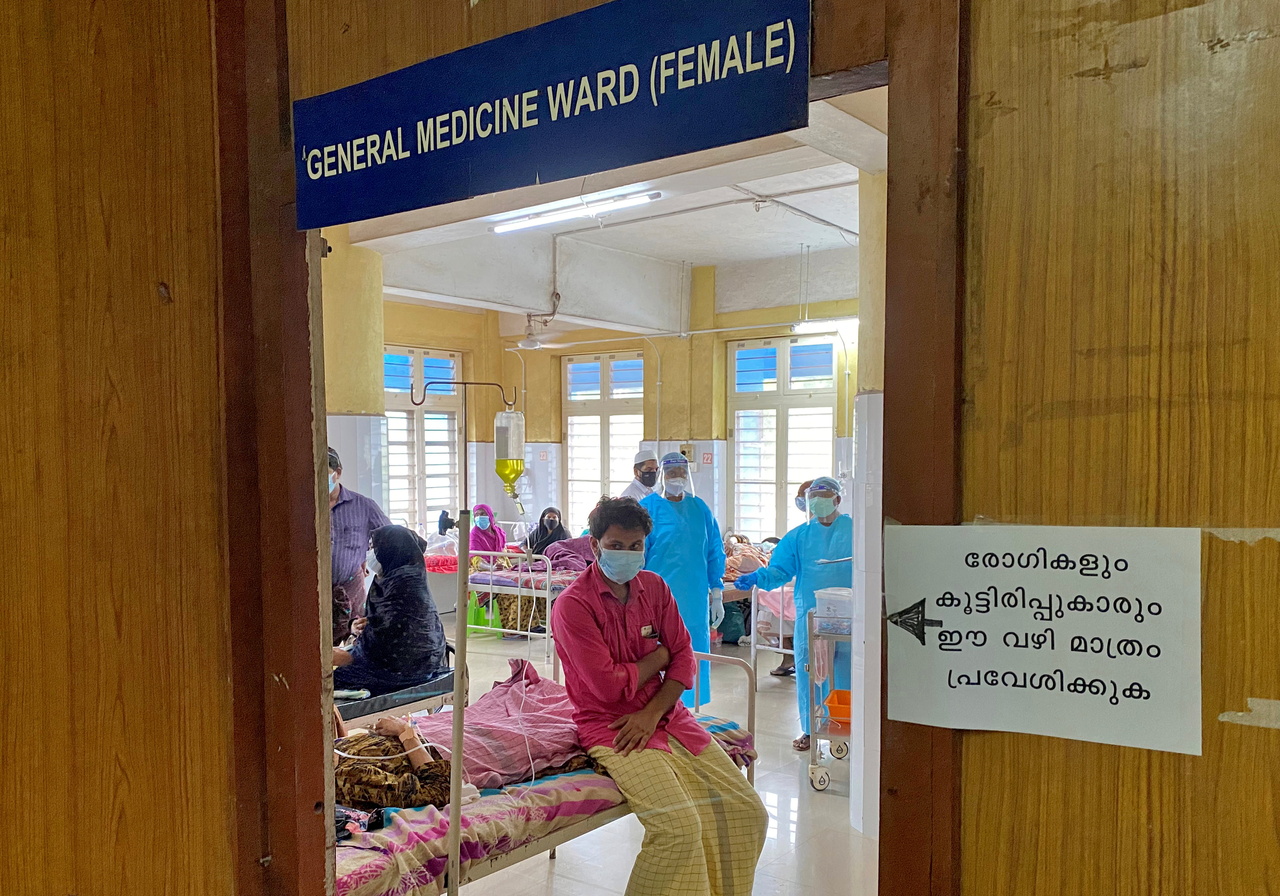Nipah virus rears its head in Covid-19-ravaged Indian state of Kerala
Sign up now: Get insights on Asia's fast-moving developments

Kerala is already grappling with at least 25,000 new Covid-19 cases every day.
PHOTO: REUTERS
Follow topic:
BANGALORE - As Kerala grapples with at least 25,000 new Covid-19 cases every day, the Nipah virus has made a return in the southern Indian state.
A 12-year-old boy died in Chathamangalam village in Kozhikode district on Sunday (Sept 5) after being infected with Nipah. A 3km radius around the boy's house is now a containment zone.
Two health workers who have shown Nipah symptoms and 188 contacts of the boy, including children he played with, are isolated for now. State health teams are closely monitoring 20 high-risk contacts of the boy.
This was the first death since May 2018 when the Nipah virus claimed 17 people in the same district in Kerala.
In June 2019, a 23-year-old student tested positive in Ernakulam, but Kerala's epidemics control team quickly isolated the patient, and prevented deaths and new infections.
This is the fifth time Nipah has been detected in India and the third in Kerala.
First identified during an outbreak in Malaysia in 1998, Nipah causes severe disease in both animals and humans. Its symptoms include fever, cough, sore throat, dizziness, fatigue, nausea and encephalitis - a brain inflammation.
The 1998 outbreak in Negeri Sembilan and Selangor states resulted in 105 deaths, starting with workers in pig farms. More than 800,000 pigs in several Malaysian states were culled to control the outbreak.
Unlike Covid-19, Nipah is not an airborne infection, and can be transmitted from animals (bats or pigs), food eaten by these animals, or from close contact with an infected person's bodily fluids.
Although not highly transmissible in humans, the authorities are concerned because the fatality rate for Nipah is 40 per cent to 75 per cent. There is no vaccine against the virus, and treatment is only supportive care.
Kerala health minister Veena George said that this week "is critical for stemming the virus' spread and saving lives".
Ms George added that there "could be more contacts" because when the boy developed a fever on Aug 27, his parents took him to a local clinic first, then a private hospital and a government medical college, and from there to another private hospital where he died at 5am on Sunday.
Dr Amar Fettle, Kerala's top official for H1N1, told The Straits Times that the Nipah infection is "more likely to spread when the patient's condition is severe, that is, when they are hospitalised".
The risk of infection spreading is thus higher in the hospital than at the community level. "So, intensive contact tracing and quarantining is the most effective way to curtail the spread of Nipah," said Dr Fettle.
The health department has published a route map of the dead child's movements, detailing the times and locations he had been in since his first symptoms, and asked the public to call a dedicated Nipah call centre if they notice any symptoms.
On Sunday, a team from India's National Centre for Disease Control collected samples of rambutans from near the boy's house, as his family suspected that he was infected after consuming the fruit.
Bat-bitten fruits were a major trigger of the 2018 Nipah epidemic in Kerala, and the authorities have advised residents against eating fallen fruits.
Kerala is having to devote resources to fighting Nipah even as it struggles to control rising cases of Covid-19. Six in every 10 cases in India are now from Kerala.
The state has around 250,000 people with Covid-19, which is five times that of Maharashtra, the second worst-affected state in the country.
Kerala also had a localised outbreak of 63 cases of the Zika virus in its capital city of Thiruvananthapuram in July.
Dr Fettle said Nipah was "not something to panic about" because Kerala instituted a model epidemics control protocol after its first brush with the disease in 2018.
The rising Covid-19 cases had also put the state "on high alert", and preventive measures like the use of masks and protective kits were already in place, he said.

